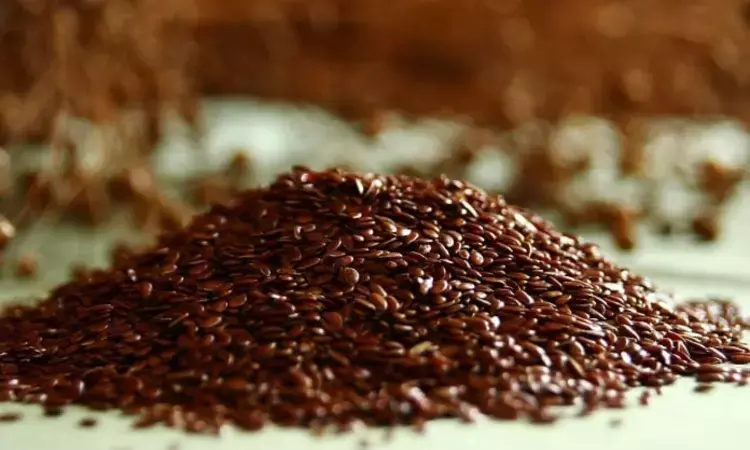- Home
- Medical news & Guidelines
- Anesthesiology
- Cardiology and CTVS
- Critical Care
- Dentistry
- Dermatology
- Diabetes and Endocrinology
- ENT
- Gastroenterology
- Medicine
- Nephrology
- Neurology
- Obstretics-Gynaecology
- Oncology
- Ophthalmology
- Orthopaedics
- Pediatrics-Neonatology
- Psychiatry
- Pulmonology
- Radiology
- Surgery
- Urology
- Laboratory Medicine
- Diet
- Nursing
- Paramedical
- Physiotherapy
- Health news
- Fact Check
- Bone Health Fact Check
- Brain Health Fact Check
- Cancer Related Fact Check
- Child Care Fact Check
- Dental and oral health fact check
- Diabetes and metabolic health fact check
- Diet and Nutrition Fact Check
- Eye and ENT Care Fact Check
- Fitness fact check
- Gut health fact check
- Heart health fact check
- Kidney health fact check
- Medical education fact check
- Men's health fact check
- Respiratory fact check
- Skin and hair care fact check
- Vaccine and Immunization fact check
- Women's health fact check
- AYUSH
- State News
- Andaman and Nicobar Islands
- Andhra Pradesh
- Arunachal Pradesh
- Assam
- Bihar
- Chandigarh
- Chattisgarh
- Dadra and Nagar Haveli
- Daman and Diu
- Delhi
- Goa
- Gujarat
- Haryana
- Himachal Pradesh
- Jammu & Kashmir
- Jharkhand
- Karnataka
- Kerala
- Ladakh
- Lakshadweep
- Madhya Pradesh
- Maharashtra
- Manipur
- Meghalaya
- Mizoram
- Nagaland
- Odisha
- Puducherry
- Punjab
- Rajasthan
- Sikkim
- Tamil Nadu
- Telangana
- Tripura
- Uttar Pradesh
- Uttrakhand
- West Bengal
- Medical Education
- Industry
Flaxseed intake may improve glucose, hs-CRP, and triglyceride levels in coronary artery disease

Iran: A recent meta-analysis published in Clinical Cardiology has shown that flaxseed supplementation may lower high-sensitivity C-reactive protein (hs-CRP), fasting blood glucose (FBS), and triglyceride (TG) levels but failed to affect weight loss parameters and other lipid markers in coronary artery disease (CAD).
Despite significant endeavours towards risk factor management and treatment improvement, cardiovascular diseases (CVDs) continue to be a prominent cause of global mortality. Therefore, CVD prevention is a significant public health concern and has wide-ranging effects on the healthcare system and economy.
Developing countries face high rates of conventional risk factors for CAD, such as low physical activity and abdominal obesity. Recent guidelines have emphasized reducing visceral fat and controlling blood pressure and dyslipidemia. Innovative nutritional strategies have been developed, including herbal medicines and functional foods. These alternative therapies are gaining popularity as individuals seek natural and safe approaches for disease prevention or to mitigate CAD risk.
Mehdi Rezaei from the Fars Society of Internal Medicine in Shiraz, Iran, and colleagues aimed to evaluate the effects of flaxseed supplementation on weight loss, lipid profiles, hs-CRP, and glucose levels in patients with coronary artery disease. For this purpose, they conducted a systematic review and meta-analysis of randomized controlled trials (RCTs).
To identify relevant RCTs, the researchers performed a systematic search using various online databases. The Q-test and I2 statistics were employed to evaluate heterogeneity among the selected studies.
Data were combined using either a fixed- or random-effects model and presented as a weighted mean difference (WMD). Of the 428 citations, six RCTs were included.
The researchers reported the following findings:
- The pooled results did not show significant changes in the WMD of lipid factors (high-density lipoprotein cholesterol, triglycerides, low-density lipoprotein cholesterol, and total cholesterol) following flaxseed intake.
- After performing a sensitivity analysis to determine the source of heterogeneity, flaxseed supplementation resulted in a significant decrease in TG levels (WMD = −18.39 mg/dL).
- No significant differences were observed in either weight or BMI following flaxseed intake.
- There was a significant decrease in the circulating fasting blood glucose levels (WMD = −8.35 mg/dL) and hs-CRP (WMD = −1.35 mg/L) after the intervention.
"The findings showed the positive impact of flaxseed intake on the reduction of FBS, TG and hs-CRP levels in patients with CAD. This finding indicates that flaxseed consumption may significantly mitigate the overall risk factors associated with CAD," the researchers wrote.
They suggest designing large, long-term trials that minimize bias and adhere to current reporting criteria for clinical trials. Adding that, "it is important to assess whether any positive effects are sustained over time."
"There is a need for further RCTs to investigate the effects of flaxseed supplementation on other cardiovascular consequences, such as myocardial infarction and stroke," the research team concluded.
Reference:
Sabet, H. R., Ahmadi, M., Akrami, M., Motamed, M., Keshavarzian, O., Abdollahi, M., Rezaei, M., & Akbari, H. (2023). Effects of flaxseed supplementation on weight loss, lipid profiles, glucose, and high-sensitivity C-reactive protein in patients with coronary artery disease: A systematic review and meta-analysis of randomized controlled trials. Clinical Cardiology, 47(1), e24211. https://doi.org/10.1002/clc.24211
Dr Kamal Kant Kohli-MBBS, DTCD- a chest specialist with more than 30 years of practice and a flair for writing clinical articles, Dr Kamal Kant Kohli joined Medical Dialogues as a Chief Editor of Medical News. Besides writing articles, as an editor, he proofreads and verifies all the medical content published on Medical Dialogues including those coming from journals, studies,medical conferences,guidelines etc. Email: drkohli@medicaldialogues.in. Contact no. 011-43720751


